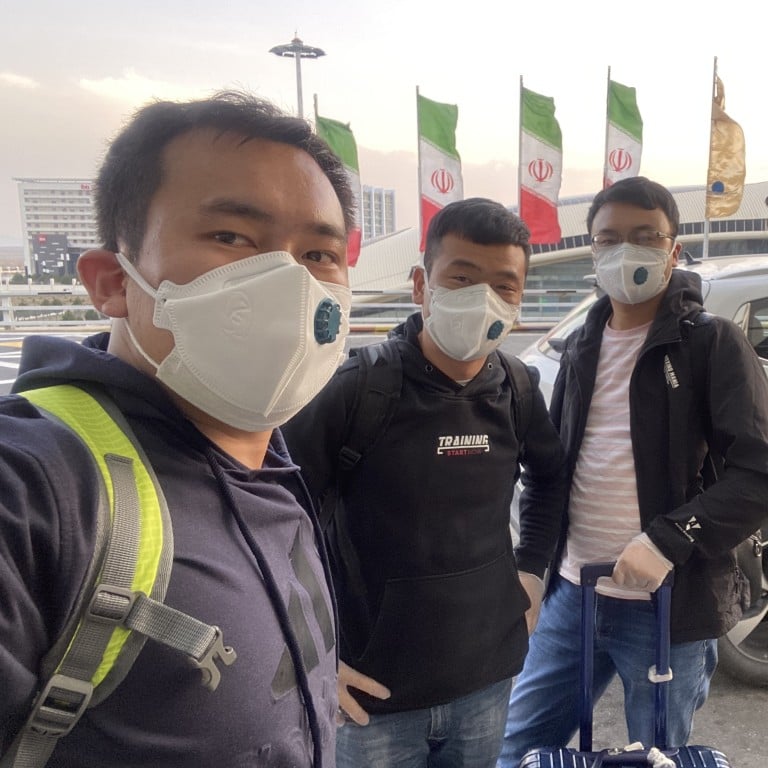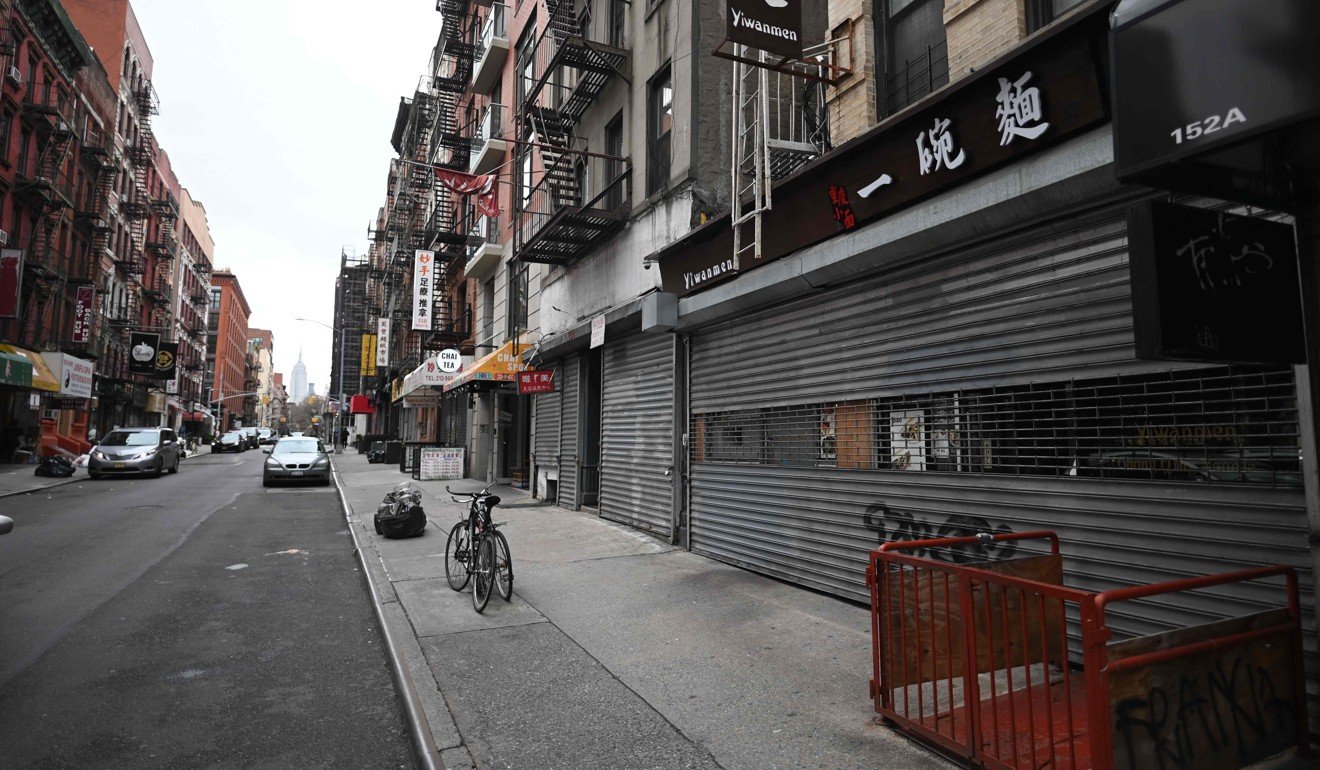
Coronavirus: Chinese overseas head home to safe haven under Beijing’s tough quarantine regime
- Some Chinese abroad feel comfort of close family, health care, masks, social control, quarantines and government surveillance is best combination to beat pandemic
- For one traveller from Zhejiang province, spectacle of thousands of people at German soccer match convinced him European approach was not enough
During his flights from Boston to Hong Kong and then to Beijing, Liu wore two layers of masks, goggles, plastic gloves and a raincoat to protect himself.
After arriving in Beijing, he spent 10 hours going through immigration and health checks. Despite the long journey and strict quarantine measures, Liu was happy to be back with his family.
As the coronavirus has spread across the world, infecting more than 193,000 people and killing more than 7,800, its presence in China has waned.
While overseas Chinese donated masks and gowns to China when the country was struggling with its outbreak of Covid-19, many of them are now debating if they should “escape” back home, to a place perceived by some as a safe haven in a global crisis.
The tipping point for many overseas Chinese was a loss of trust in the health care systems of their countries of residence.
“If something happens to me, I would rather be in China,” Liu said, citing the scarcity of testing kits in the US. “The health care services [in China] are better. The medical system has already handled tens of thousands of cases.”
Huge UK concerts amid pandemic leave people in China stunned
But with travel restrictions tightening everywhere, it was not as easy as getting on a plane and landing in China 15 or 16 hours later – and doing so has become the preserve of the wealthy.
With many flights from Europe and the US cancelled, remaining seats cost thousands of dollars each. Private jet operator Deer Jet sold 40 seats on Monday’s luxury flight from London to Shanghai at about US$26,000 each, according to The Beijing News.
Other worries for Chinese include the risk of infection during international travel and the difficulty of returning to the country where they study or work.
Wu Peiyue, 26, a writer in New York City, said she was worried that if she returned to China, she might have trouble going back to the US because of travel restrictions.
The city had more than 800 confirmed cases as of Wednesday. Wu tried to stay at home as much as possible and wore masks when she went out. She has no health insurance in the US and would not be able to afford medical care if she became sick.
“I might just stay home if I get infected,” she said. “If I can’t get through it, I will lose my life.”
The Chinese government is now on high alert for returning citizens, worried that inbound travellers will speed up the spread of the virus that authorities only recently got under control.
As imported coronavirus cases surge, eight more test positive in Hong Kong
In China, imported coronavirus cases are beginning to outnumber cases from community spread. Of the 13 new infections reported on Wednesday, 12 were imported.
Many provinces have put all travellers arriving from abroad into mandatory quarantine. Some local governments require travellers to register with their residential compound before they arrive in China.
In Hong Kong, where local transmissions have so far been kept under control, the government ordered all people entering the city to be quarantined for 14 days, starting from Thursday.
Despite the mandatory quarantine at home, many overseas Chinese, especially students, said they were desperate to return because of school closures, a desire to be with close family and a greater trust in China’s epidemic control mechanism.

Zhang first flew to Bangkok on March 1, and was kept in the Thai capital for a week after a passenger on his flight tested positive for the coronavirus. On March 10, he was allowed to board a plane for Chengdu in southwestern Sichuan province.
“We didn’t even try to leave when [Qassem] Soleimani was killed,” Zhang said from quarantine in Chengdu, referring to the assassination of the Iranian general that prompted fears of armed conflict between the US and Iran.
“But now all of us are trying to go back to China. It’s safer here. In Iran, people don’t wear masks. They don’t feel obliged to stay indoors.”
Iran state TV warns ‘millions’ may die unless public heed health advice
While China’s initial cover-up of the epidemic led to widespread discontent, many Chinese have given credit to the authorities for successfully slowing the transmission of the virus since drastic quarantine measures were put in place at the end of January.
Beijing has enforced mass quarantines with a powerful propaganda apparatus, surveillance technology and a large network of community watchers.
As health experts in Europe and America have struggled to convince everyone to stay at home and practise social distancing, many Chinese said the draconian measures in their country have made them feel safer.
Mao Yihao, a 19-year-old college student who travelled from Munich in Germany to his hometown in Hangzhou in Zhejiang province, on Saturday, said the hazardous materials suits he saw on medical and security staff at Chinese airports made him feel nervous but reassured.
“People in Germany don’t think the virus is a great deal,” he said, citing a soccer match on March 7 that drew a crowd of 54,000. “Chinese people are more aware of protecting themselves. I feel more at ease here.”
The German government said on Monday that it would close non-essential businesses and ban religious gatherings. Schools have also been closed.
Purchase the China AI Report 2020 brought to you by SCMP Research and enjoy a 20% discount (original price US$400). This 60-page all new intelligence report gives you first-hand insights and analysis into the latest industry developments and intelligence about China AI. Get exclusive access to our webinars for continuous learning, and interact with China AI executives in live Q&A. Offer valid until 31 March 2020.

